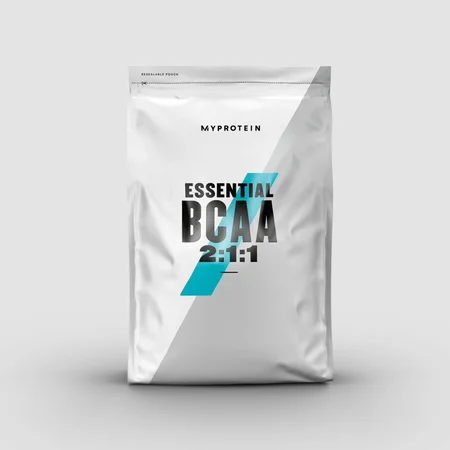
A solid weight-training regimen consists of roughly 85% nutrition and 15% exercise. The building blocks of a good nutritional diet must have a substantial balance of macro nutrients. Macro nutrients include carbohydrates, lipids, proteins, and water. These specific substances give your body the fuel it needs in order to perform at a high intensity and also provide the nutrients to strengthen the body and help the body recover.

Macro nutrient needs may vary with different individual’s goals and caloric requirements. Normal percentages for these nutrients are 50%-70% carbohydrates, 15%-30% lipids (fats), and 10%-15% proteins. Five-six small meals should be consumed daily with a good balance of these macro nutrients being consumed at each meal in order to maintain a stable metabolism and allow the body to burn calories throughout the day.
Carbohydrates for Strength Training
The first essential macro nutrient is the carbohydrate group. Carbohydrates are used as the primary energy source for work, cell maintenance, and heat. There are two different types, complex and simple carbohydrates. Foods containing complex carbohydrates (polysaccharides) consist of breads, grains, legumes, starchy vegetables, and fiber. The three major types of complex carbohydrates are starches, dextrins, and glycogen. Glycogen, the body’s main reserve of glucose, is stored in the liver and muscles. When the body needs energy quickly, as when weight-lifting, it turns to these glycogen stores, breaks the glycogen molecule down into glucose, which provides for proper energy transformation. Therefore, adequate consumption of complex carbohydrates is crucial for a successful weight-training program.

Simple Carbohydrates
Simple carbohydrates consist of sugars such as monosaccharides (glucose, fructose, galactose) and disaccharides (sucrose, lactose, maltose), which are often found in fruits, milk and candies. For many athletes, due to the sweetness of simple carbohydrates, these often take the place of foods that provide more healthy nutrients in a diet. Weight lifters should stay away from foods with high sugar content because of their ability to raise blood sugar levels.
Fiber
Fiber is one of the greatest contributions made by complex carbohydrates. It provides bulk to a diet and helps increase the satiety of foods. The main sources of fiber are whole-grain breads, cereals, fruit pulp, vegetables, and legumes. Fiber is important because it reduces the risk of cardiovascular disease and colon cancer. Researchers do not yet fully understand how a high- fiber diet lowers the risk of heart disease. A daily consumption of 25 grams of fiber is adequate for a healthy individual.
When to Consume Carbs
To be available for use by the body, carbohydrates should be consumed two to four hours prior to exercise, allowing for proper digestion and absorption. After exercise, a high carbohydrate meal should be consumed in order to replenish glycogen stores. A delay in this will decrease muscle glycogen synthesis.
Lipids for Strength Training
Lipids are the next important macronutrient and they have a bad reputation, as many believe consuming fats causes weight gain. This normally is not the case. Lipids have many important qualities for normal body function, which include absorption of many essential vitamins, maintain cell membrane structure, and help keep the immune system working. At nine calories per gram, lipids are the most concentrated energy source within the body. When glycogen stores are empty, fat cells are now used as the primary energy source.

Lipids are mostly used as insulators to preserve heat and are made up of triglycerides (fats and oils), phospholipids, and sterols. Weight training diets should be low in unhealthy fats, such as saturated fats (found in butter and fatty meats) and trans fats (also found in butter and vegetable oils). Saturation of fats means that all free carbon atom-bonding sites have hydrogen attached to it. These should be avoided as they can raise “bad” cholesterol levels (LDL) and lower “good” cholesterol levels (HDL), which may lead to heart attacks.
Strength trainers should also consume limited amounts of fat because they may not satisfy peripheral satiation mechanisms, such as chewing, swallowing, and stomach distention, which lead to hyperphagia (or overeating). Foods such as salmon and nuts, containing omega-3 fatty acids (polyunsaturated fats), and light olive and canola oils (monounsaturated fats) should be included in a weight training diet because of their ways of combating heart disease.
Protein for Strength Training
The third important macronutrient, protein, is by far the most crucial for an individual on a weight-training regimen. Protein is used mainly to build and repair broken down muscle tissue. When there are not enough carbohydrates available for energy, proteins can be used. The primary and most beneficial sources of protein are lean meats, fish, dairy products, eggs, and some legumes. There are twenty essential and non-essential amino acids that make up all proteins. Eight out of the twenty are termed essential amino acids because the body cannot produce them naturally and they have to be consumed through foods. The other twelve non- essential amino acids are naturally occurring within the body.

For normal body function, all amino acids must be present in the diet. The Recommended Daily Allowance (RDA) for protein intake is 0.8 g/kg per day. Protein requirements will differ between individuals based on size, caloric needs, and personal goals. For example, a body builder will need a greater amount of protein in his/her diet than an endurance athlete.
Protein Supplementation
Food sources are not the only means of acquiring protein. Protein supplements have grown in popularity in the weight-training industry. Whey protein is a common supplement (mostly in powder form) among athletes and bodybuilders because of its fast absorption qualities that can satisfy muscle depletion rapidly after an intense workout.

Casein is another popular protein supplement, which can be found in whole foods (most dairy products) as well as powder forms. Casein is used for its slow absorption qualities and is most often consumed before sleep, when the body is in a catabolic state, allowing for continual protein absorption. It is important to know that there is no substitute for whole food proteins and an individual should not rely on supplements when formulating a balanced diet.
Water for Strength Training
Although not considered a primary macronutrient, water is the most essential substance of any diet. Without water, there cannot be any chemical reactions within the body. These chemical reactions are known as our body’s metabolism. Ninety-six fluid ounces, or three quarts, of water should be consumed every day. Physiologically, water helps with digestion, absorption, hydration, removing waste products, and transporting nutrients. Other benefits include improved liver function, improved metabolic function, significant decreases in appetite, and cleansing the body of toxins by flushing out urea and ketones. By flushing out these toxins, water provides for proper kidney function.
Dehydration is a major concern in any weight-training program; dehydration impairs physiologic function. For weightlifters, dehydration can make it difficult for muscles to contract properly, which can reduce muscle tone. Increasing water intake has been known to reduce muscle cramping and also increase athletic performance.
Take-Home Message
Macronutrients are the basis for any healthy and successful weight-lifting regimen. These macronutrients; carbohydrates, lipids, proteins, and water, provide the body with the energy it needs to function properly and perform everyday activities. Proper percentages of these nutrients need to be consumed regularly at each meal in order to maintain optimum nutrition and athletic performance.

These percentages are used as guidelines and may be altered depending on different factors, which include height, weight, caloric needs, goals, athletic ability, and gender. Water is the most important substance in any diet. Adequate water intake is necessary for optimum performance and normal muscle function.
Improper consumption of any of these macronutrients can be detrimental to an individual’s health and can ultimately cause damage to one’s body. It is important to always keep in mind that diet and nutrition make up to 85% of any fitness plan.

1.) Hoeger, Werner, and Sharon Hoeger. Fitness and Wellness. 9th ed. Wadsworth, 2009. 122-26. Print.
2.) NASM Essentials of Personal Fitness Training. 3rd ed. Baltimore, MD: Lippincott Williams and Wilkins, 2008. 420-43. Print.
3.) Gastelu, Daniel. “Dan Gastelu’s Sports Nutrition Guide.” Bodybuilding.com, 2006. Web. 7 Sep 2010.










